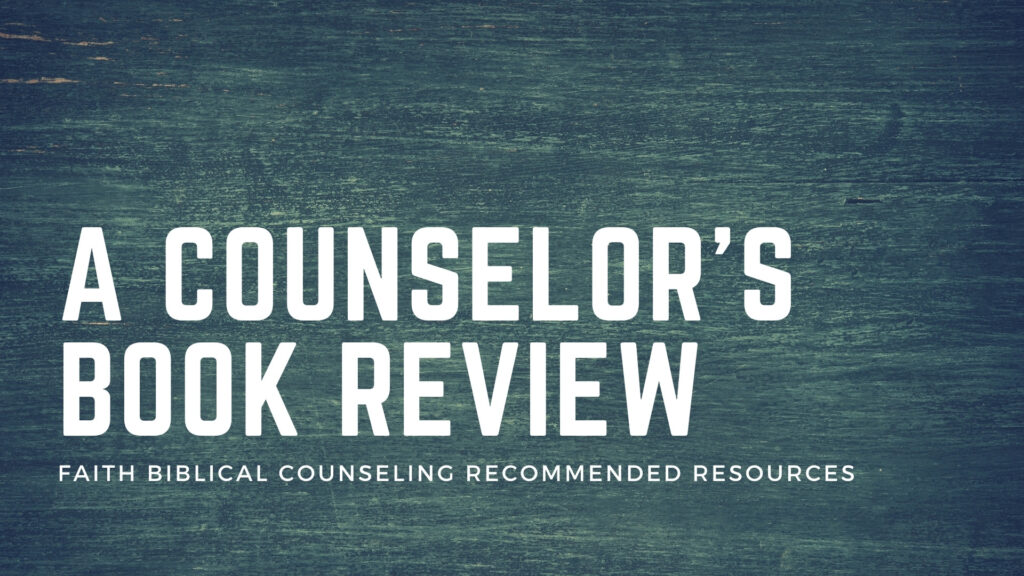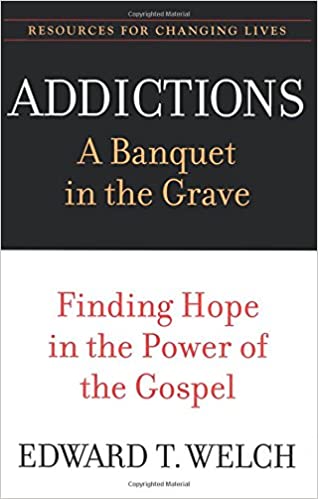
Addictions are a heartbreaking reality. How many of us have personally suffered because of the plague of addictions in our modern world? Whether a personal struggle or watching the battle with addictive behavior rage in the life of a loved one, we know the havoc addictions can wreak upon all that they touch. So many are crying out for a cure; yet a cure seems so elusive. Often, it is assumed addictions are a medical problem and if we could just find the genetic code or the right medication, lives could be transformed.
But what if our world misunderstands addictions? What if the issue is not medical but spiritual? What if God, through His Word could bring radical, gospel transformation to the life of someone in the throes of a battle with an addiction? Ed Welch explores this reality in his book, Addictions: A Banquet to the Grave.
Overview Summary of Content
The basic premise of Ed Welch’s book is, “Theology makes a difference. It is the infrastructure for our lives…The basic theology for addictions is that the root problem goes deeper than our genetic makeup. Addictions are ultimately a disorder of worship.” [1] Welch explores this radical idea of a “worship disorder” by creating a theological lens through which the reader can understand the spiritual nature of addiction. In part one, he brings a fresh look to key, biblical passages that speak to addiction. In part two, he continues building his theological framework by, not merely showing the root of addictions, but bringing the gospel to bear. Ultimately, he shows the hope possible by God’s transformative work in the person struggling with addictive behavior. Throughout the book, Welch also brings a loving and gracious critique of the predominant cultural approach to addiction.
Addictions are ultimately a disorder of worship.” [1] Welch explores this radical idea of a “worship disorder” by creating a theological lens through which the reader can understand the spiritual nature of addiction. In part one, he brings a fresh look to key, biblical passages that speak to addiction. In part two, he continues building his theological framework by, not merely showing the root of addictions, but bringing the gospel to bear. Ultimately, he shows the hope possible by God’s transformative work in the person struggling with addictive behavior. Throughout the book, Welch also brings a loving and gracious critique of the predominant cultural approach to addiction.
Primary Area of Usefulness
Because addiction is so prevalent, it is not a question of if but a question of when a pastor or biblical counselor will be asked to minister to those affected by addictive behavior. This book can prepare a person for those ministry opportunities. It can provide a biblical framework to the problem and a guide to examining biblical passages that engage the issues motivating addictive behaviors.
Reading this book can also be an exercise in showing the unsurpassed beauty of the gospel to address even the bleakest realities of life in a fallen world. To see that God’s love is extended to humans that are plagued by twisted and corrupted worship, bring them to a right relationship with Him, and reorder their lives should enlarge our awe of God and bolster our hope in the gospel.
Example Uses of the Resource
To help you think about how this book might benefit your ministry, let me share a few examples of how I personally have benefitted from it:
The framework provided in this book is a help for pastoral conversations I may have at any given moment of ministry. Occasionally at Sunday morning worship gatherings, I may have someone approach looking for prayer or in-the-moment counsel regarding a struggle with an addiction or someone looking for direction because of the struggles of someone they love. The theological framework Welch provided in the book gave me a basic framework for those who seeking direction. It also gave me an understanding of a few Scriptural passages that I can share to give direction and hope in the gospel.
This book has also informed teaching that I have done for our church body. We have an outreach where we partner with a local rescue mission. Many of the men at the mission came there because of extremely destructive consequences stemming from addictive behavior. This book became an invaluable resource for the teaching I developed and was one of a few resources I pointed others to for further study that would, in turn, help them better minister to others.
Our church is located near a few colleges and we have students participate in our church life while attending college. Sometimes we have students majoring in psychology or counseling that come to the church. Their desire is to help others and they often have a desire to serve Jesus. However, they see a disconnect between what they are being taught in college courses and God’s Word.
Ed Welch’s book is a resource that I have recommended to show that God’s Word is sufficient for even the most difficult issues of life.
[1] Ed Welch, Addictions: A Banquet in the Grace (Philipsburg, NJ: P&R Publishing, 2001), xvi.
 Biblical Counseling
Biblical Counseling